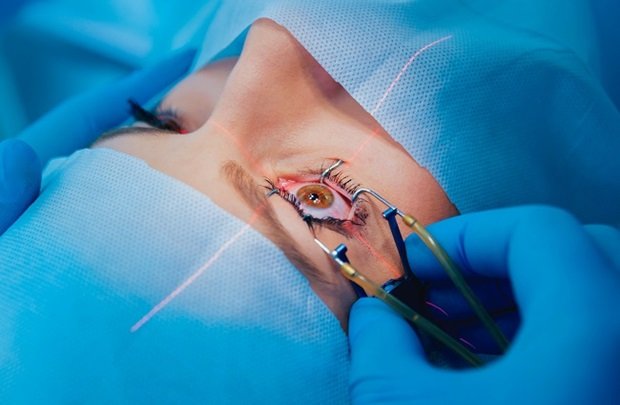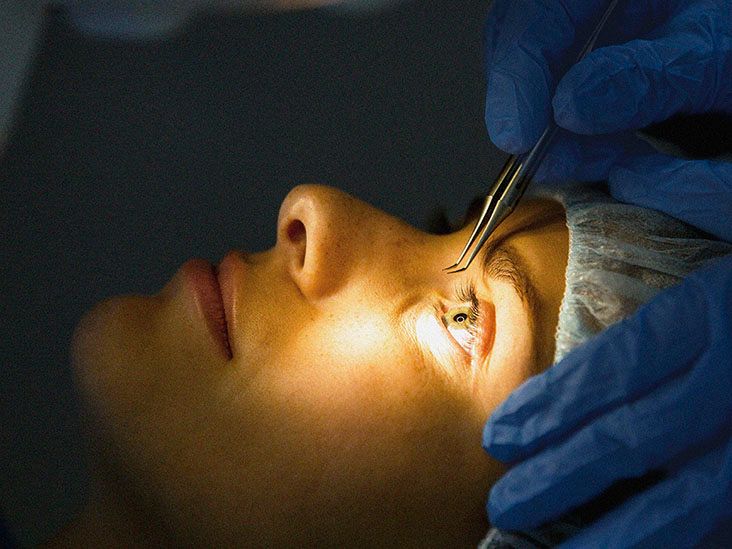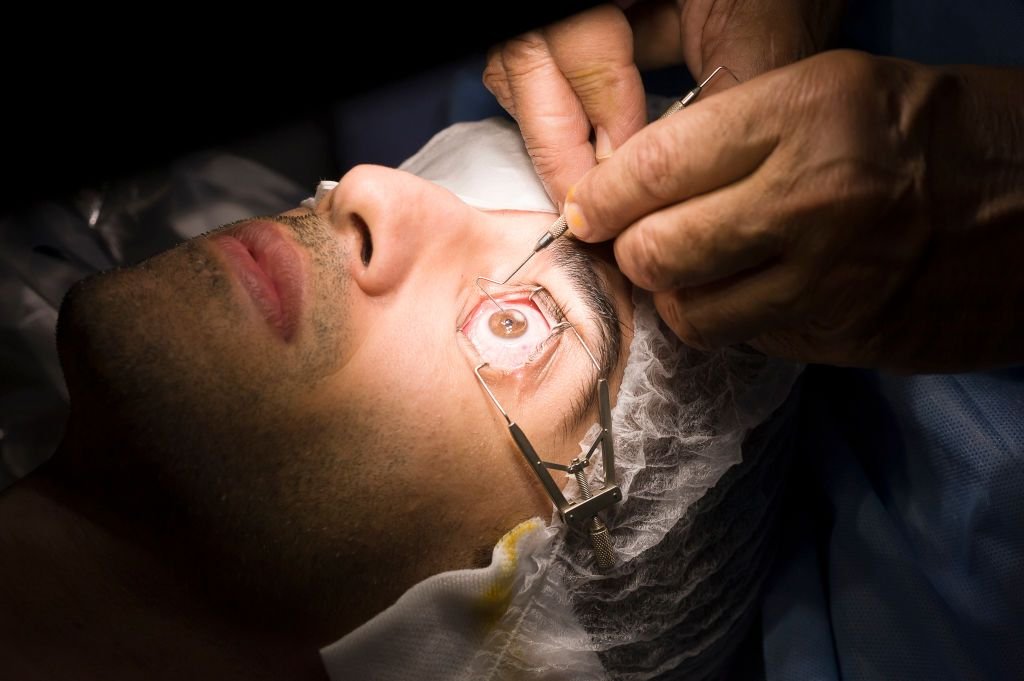An In-depth Check Out the Different Eye Surgical Procedure Procedures Used by Competent Eye Doctors
In the realm of ophthalmology, the landscape of eye surgical procedure procedures supplied by experienced ophthalmologist is as diverse as it is progressed. From the extensively recognized LASIK eye surgical treatment to the less familiar refractive lens exchange, each treatment holds the assurance of vision adjustment and enhancement. As patients navigate the myriad choices available to them, recognizing the complexities of these surgical treatments comes to be paramount in making educated choices regarding their eye wellness. The precision, innovation, and expertise behind these treatments reveal an interesting world where science and art assemble to redefine the possibilities of vision enhancement.

LASIK Eye Surgery
The accuracy of LASIK eye surgical treatment supplies patients a transformative solution for vision improvement provided by experienced optometrist. LASIK, which stands for Laser-Assisted Sitting Keratomileusis, is a preferred refractive surgical procedure that reshapes the cornea to resolve usual vision issues such as farsightedness, astigmatism, and nearsightedness. This outpatient procedure uses an extremely specialized laser to specifically remove tiny quantities of cells from the cornea, permitting improved focusing power and more clear vision without the demand for glasses or contact lenses.
Throughout the LASIK treatment, the eye surgeon produces a thin flap on the cornea making use of a microkeratome or a femtosecond laser. This flap is then folded back to access the underlying corneal tissue, which is improved making use of an excimer laser based on the person's distinct prescription. The flap is after that rearranged, where it adheres back right into place without the requirement for sutures, promoting quick recovery and very little pain post-surgery. With its high success rate and fast recovery time, LASIK eye surgical treatment has actually ended up being a trusted method for accomplishing long-term vision enhancement.
PRK Procedure
A very effective choice to LASIK eye surgical procedure is the PRK procedure, understood for its successful outcomes in vision improvement. PRK, or Photorefractive Keratectomy, is a kind of refractive surgical treatment that improves the cornea to remedy refractive errors such as farsightedness, nearsightedness, and astigmatism.
During the PRK procedure, the external layer of the cornea, called the epithelium, is removed to access the underlying corneal cells. Unlike LASIK, which produces a flap in the cornea, PRK straight reshapes the surface area of the cornea. Tallahassee Eye Doctors. This makes PRK an ideal alternative for people with thin corneas or various other corneal abnormalities that may stop them from undertaking LASIK
Following the removal of the epithelium, an excimer laser is used to sculpt the cornea to the desired shape, fixing the refractive mistake. The epithelium regenerates normally over a couple of days after the procedure. While the recovery time for PRK is commonly longer contrasted to LASIK, numerous patients accomplish excellent visual results with this treatment. PRK is a secure and effective option for people looking for to reduce or remove their dependence on restorative lenses.
Cataract Surgery
Cataract surgery is a typical procedure done to remove the cloudy lens of the eye and replace it with a clear artificial lens. This surgery is typically done on an outpatient basis and is browse around this web-site extremely successful in restoring vision. The cloudy lens, which is understood as a cataract, forms slowly and can trigger blurred vision, difficulty seeing during the night, and sensitivity to light.
Throughout the cataract surgery treatment, the eye doctor makes a small cut in the eye and uses ultrasound technology to separate the gloomy lens. The fragmented lens is after that carefully suctioned out, and a man-made intraocular lens (IOL) is inserted in its area. This IOL helps to concentrate light onto the retina, boosting vision.
Patients undertaking cataract surgical procedure are usually awake throughout the procedure, which normally lasts around 15-30 mins. Recovery time is reasonably fast, with numerous people observing improved vision within a few days. It is important to adhere to post-operative treatment instructions offered by the eye surgeon to make certain optimal healing and vision end results.
Refractive Lens Exchange
Refractive Lens Exchange, also called lens substitute surgery, is a procedure that includes eliminating the eye's natural lens and changing it with a fabricated lens to correct vision issues. This surgical method is mostly utilized to treat presbyopia, extreme hyperopia (farsightedness), and various other refractive errors that can not be appropriately attended to with conventional approaches like glasses or call lenses. During the treatment, the natural lens is generally changed with a premium intraocular lens (IOL) that can deal with refractive mistakes and, sometimes, also avoid the growth of cataracts in the future. Refractive Lens Exchange is thought about a secure and efficient choice for people looking for to lower their reliance on restorative glasses and boost their overall high quality of vision. By speaking with a knowledgeable ophthalmologist, patients can figure out if they appropriate candidates for this kind of surgical treatment and discuss the prospective advantages and risks connected with the treatment.
Corneal Transplant
Having actually attended to refractive mistakes through treatments like lens substitute surgery, experienced eye doctors also provide corneal transplants as a solution for sure eye problems. A corneal transplant, likewise referred to as corneal grafting, includes replacing a damaged or diseased cornea with a healthy donor cornea to improve vision. This treatment is typically recommended for individuals with problems such as keratoconus, corneal scarring, corneal abscess, or corneal thinning.
During a corneal transplant, the sensory surgeon gets rid of the main section of the damaged cornea and replaces it with a donor cornea that is thoroughly matched for shapes and size. There are various kinds of corneal transplants, including permeating keratoplasty, where the entire thickness of the cornea is replaced, and partial thickness transplants like Descemet's stripping automated endothelial keratoplasty (DSAEK) or Descemet's membrane layer endothelial keratoplasty (DMEK), which replace just the internal layers of the cornea.

Verdict

In the world of blog ophthalmology, the landscape of eye surgery procedures provided by proficient eye physicians is as varied as it is advanced.The accuracy of LASIK eye surgery supplies people a transformative option for vision improvement given by proficient eye physicians.Refractive Lens Exchange, also recognized as lens substitute surgery, is a treatment that involves removing the eye's all-natural lens and replacing it with a man-made lens to fix vision issues.Having attended to refractive errors via treatments like lens substitute surgical procedure, proficient eye medical professionals additionally supply corneal transplants as an option for certain eye problems.In conclusion, proficient eye physicians provide a range of eye surgery treatments including LASIK, PRK, cataract surgical treatment, refractive lens exchange, and corneal transplant.